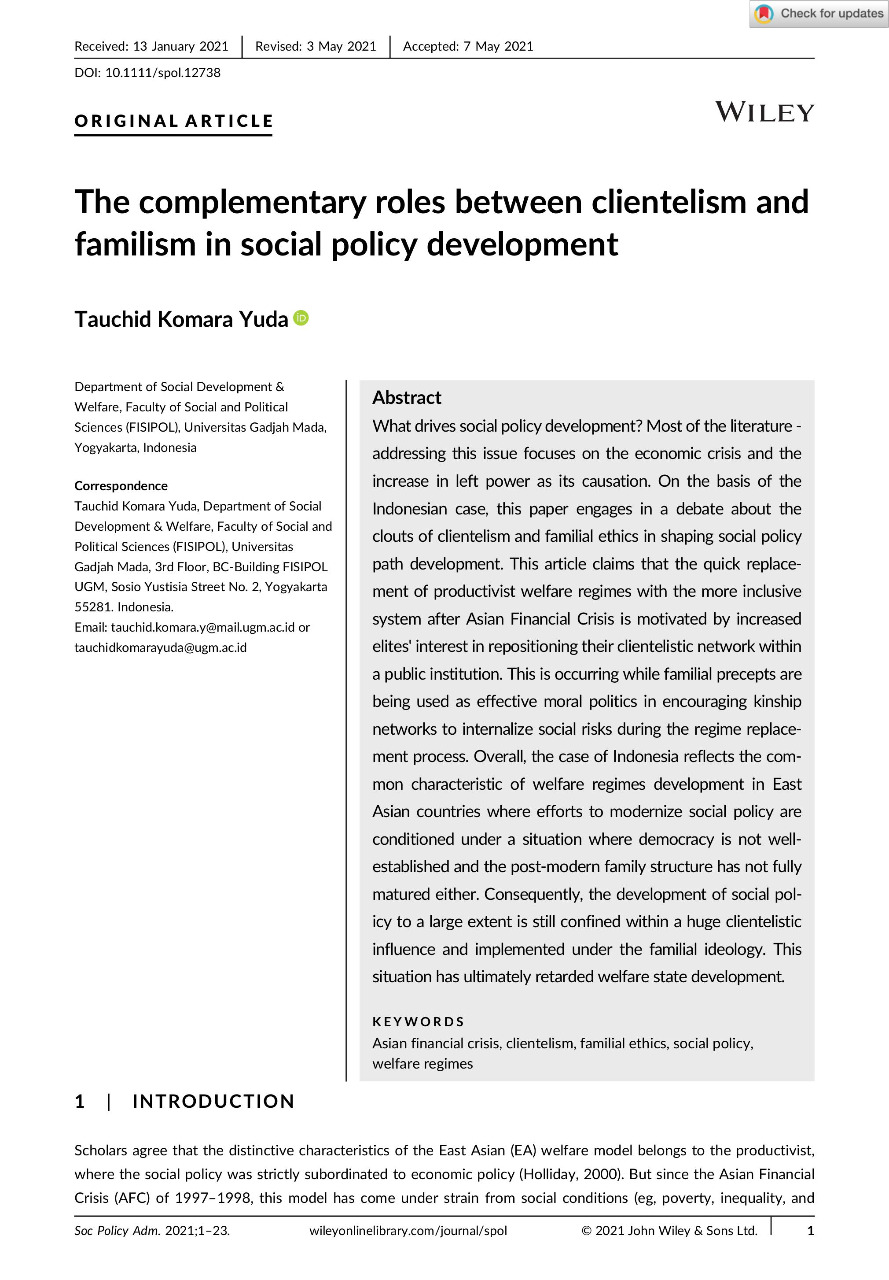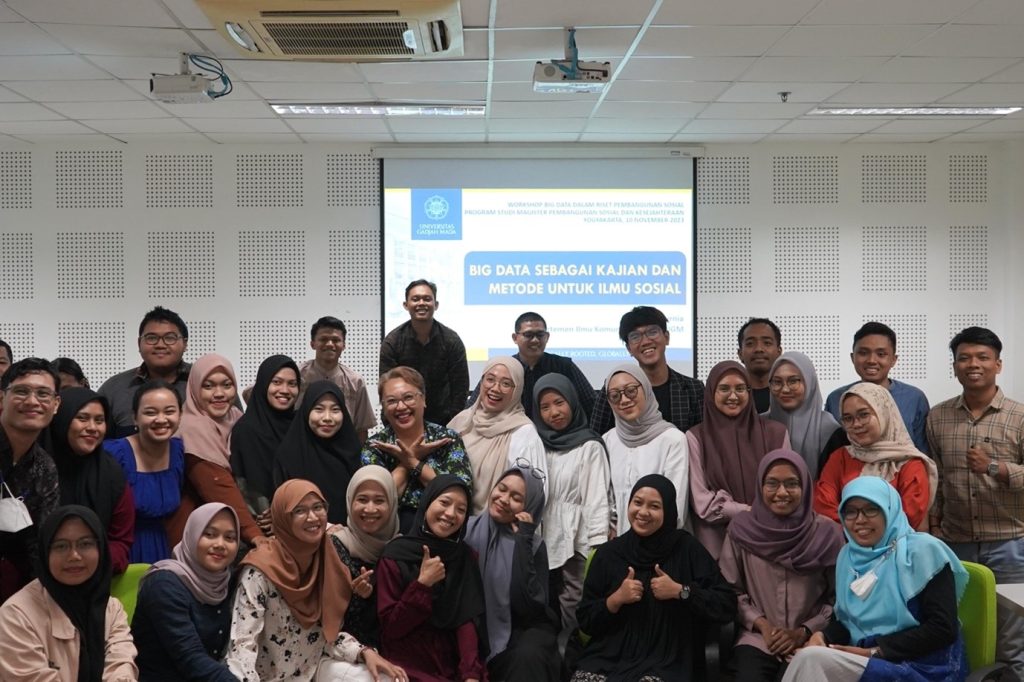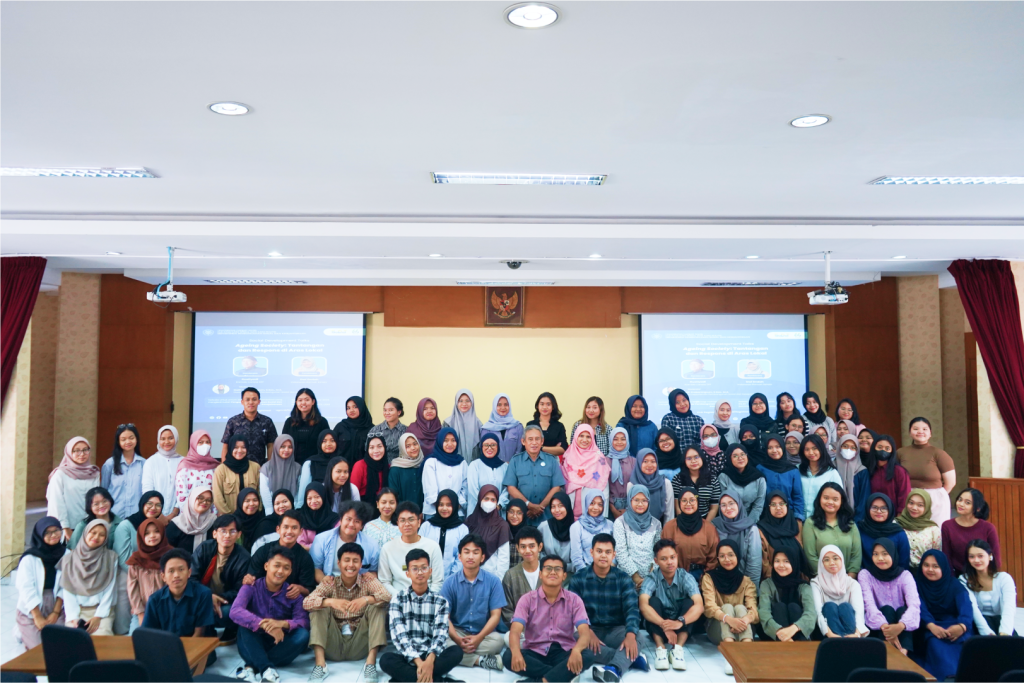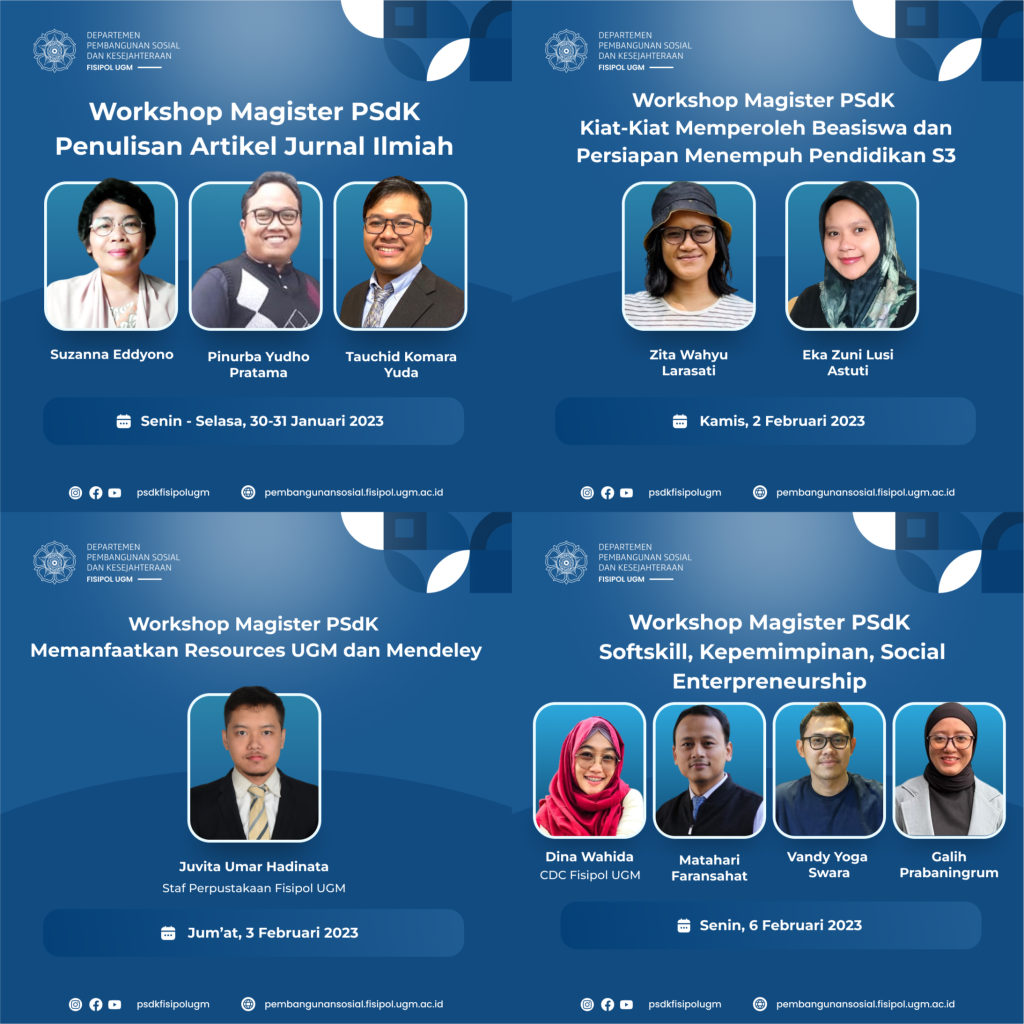Tauchid Komara Yuda
Social Policy Adm, 2021
Page 1-23 | Published online: 24 May 2021
Abstract
What drives social policy development? Most of the literature addressing this issue focuses on the economic crisis and the increase in left power as its causation. On the basis of the Indonesian case, this paper engages in a debate about the clouts of clientelism and familial ethics in shaping social policy path development. This article claims that the quick replacement of productivist welfare regimes with the more inclusive system after Asian Financial Crisis is motivated by increased elites’ interest in repositioning their clientelistic network within a public institution. This is occurring while familial precepts are being used as effective moral politics in encouraging kinship networks to internalize social risks during the regime replacement process. Overall, the case of Indonesia reflects the common characteristic of welfare regimes development in East Asian countries where efforts to modernize social policy are conditioned under a situation where democracy is not well-established and the post-modern family structure has not fully matured either. Consequently, the development of social policy to a large extent is still confined within a huge clientelistic influence and implemented under the familial ideology. This situation has ultimately retarded welfare state development.
Yuda, Tauchid Komara. 2021. “The Complementary Roles Between Clientelism and Familism in Social Policy Development”. dalam Social Policy Adm, h. 1-23. Mei 2021.
Sumber publikasi jurnal dapat diakses melalui tautan berikut.






